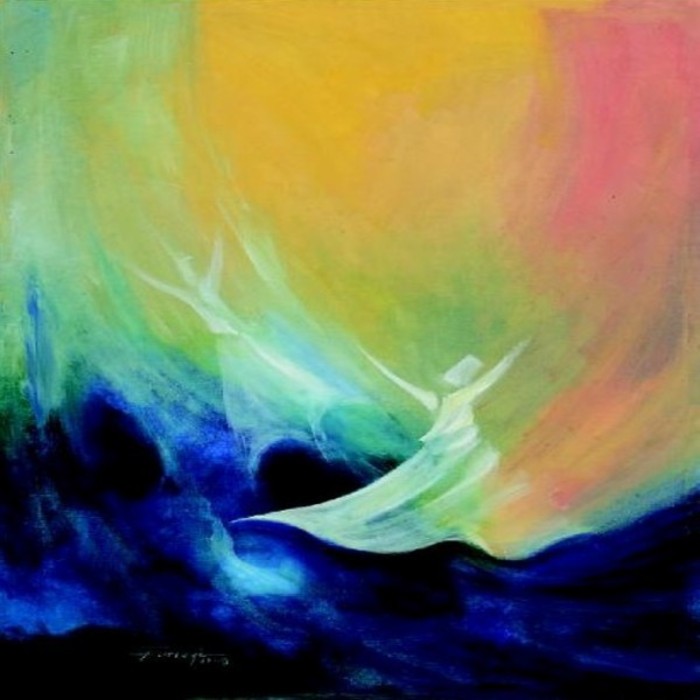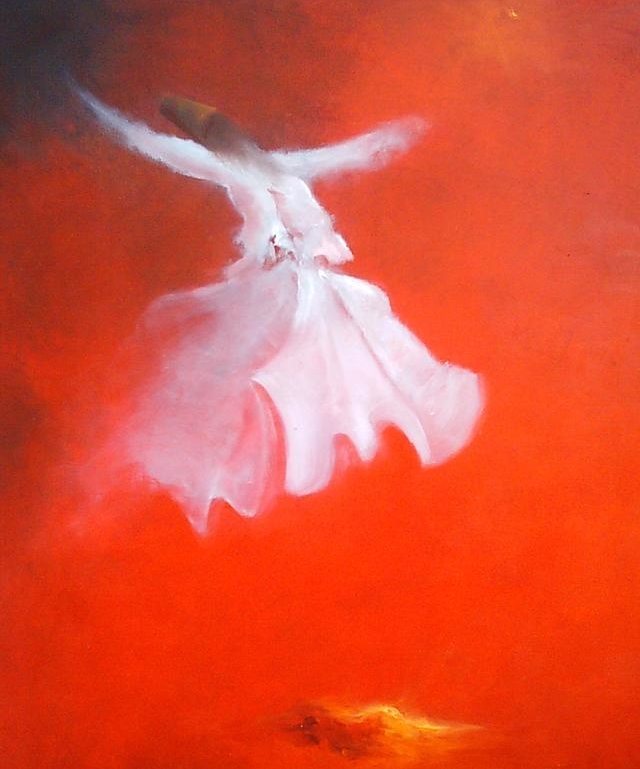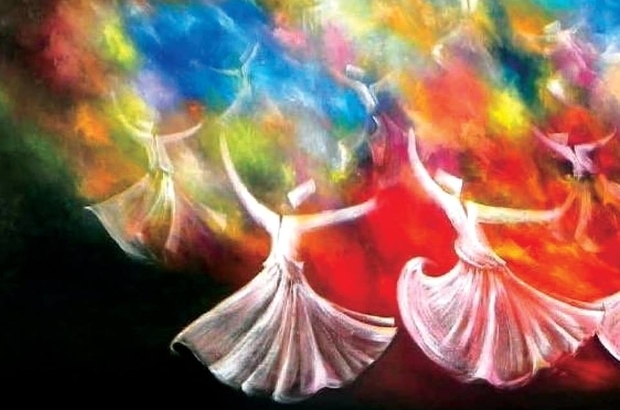ISSARIYA MORGAN celebrates Rumi, the thirteenth century Persian poet and Sufi master.
Out beyond ideas
of wrongdoing and rightdoing,
there is a field.
I’ll meet you there.
Khaled Hosseini’s And the Mountains Echoed begins with this epigraph, ‘a poem by Jalaluddin Rumi’. Hosseini is not unique in this respect, but one of innumerable writers who decide to pay homage to the Rumi at the beginning of their works, as if the act may bestow the story-telling wisdom of ages onto their narratives. Yet Rumi’s enduring presence extends beyond epigraphs. The Persian poet, scholar, theologian and Sufi mystic continues to dominate US bestseller lists in his own right, and his oft-quoted verse can now be accessed via the Twitter account @RumiQuotes. So what is it about this poet’s simple, beautiful verse that not only speaks to modern readers, but moves them to create stories of their own?
Often described as ‘ecstatic’, the spirit of joy that emanates from Rumi’s verse touches the reader with a loving energy. Lines such as, ‘respond to every call that excites your spirit’, act like mantras: messages which enable us to unlock barriers within ourselves through repetition. This may account for the popular use of Rumi quotations in books on spiritual healing, coffee mugs and ‘inspirational’ wall hangings. In our daily lives, we surround ourselves with sequences of words and sounds; infused with spiritual meaning, the melodic resonance of these sequences takes on uplifting qualities. Sentiments like, ‘when you see love with all your heart, you will find its echoes in the universe’, enliven the spirit upon reading or hearing.

This is where Rumi’s Sufism enters the picture. Sufism is an Islamic mystical practice centred on a sense of oneness with the universe and the purification of the spiritual self through love. Sufi spiritualism is the life force of Rumi’s lyrical poetry. The ecstasy that emanates from words such as, ‘dance until you shatter yourself’, lives on in the Dance of the Whirling Dervishes, established in 1273 following Rumi’s death. Sufis channel their devotion to Allah through ecstatic dance and music ritual, in which the whirling dancer experiences a spiritual ascent through an immersion in love.
Rumi’s poetry is deeply entwined with Islamic thought. His most celebrated work, the Masnavi, is a collection of Sufi stories and parables embedded with Qur’anic teachings. Rumi himself described the Masnavi as ‘the roots of the roots of the [Islamic] Religion’. The Sufi sense of cosmic oneness permeates the collection. As the poet asserts, ‘we were one substance, like the Sun; we were knotless and pure, like Water’. Yet despite the essentiality of religion in his poetry, reference to Islam is strikingly absent in many modern adaptations or appropriations of Rumi’s work. To retain a text’s spirituality while erasing its religious context is, to quote the Professor Omid Safi, an act of ‘spiritual colonialism’: ‘the erasure and occupation of a spiritual landscape which has been lived and breathed and internalised by Muslims worldwide’.

The passage of poetry which begins this article offers a prime example of the erasure of Islamic references from modern translations. The original Persian does not refer to ideas of ‘wrongdoing’ and ‘rightdoing’, but rather iman (‘religion’) and kufr (‘infidelity’). Journalist Rozina Ali makes the argument that Rumi is putting forward a radically liberal and heterodox vision of Islam in which ‘the basis of faith lies not in religious code but in an elevated space of compassion and love’. Nonetheless it is an Islamic vision, and should be respected as such in modern translations.
Rumi (1207-1273) is currently one of the bestselling poets in America. His unwavering appeal lies in the compassion of his words, which transcend faith and culture, continuing to chime profoundly with contemporary readers, even after seven hundred years. Acknowledging Rumi’s vision of love within its Islamic context, as well as recognising its unifying potential, is a small but meaningful step towards tackling the division which pervades today’s global religious landscape.
Rumi’s best-selling ‘Selected Poems’ is published by Penguin (2004).





